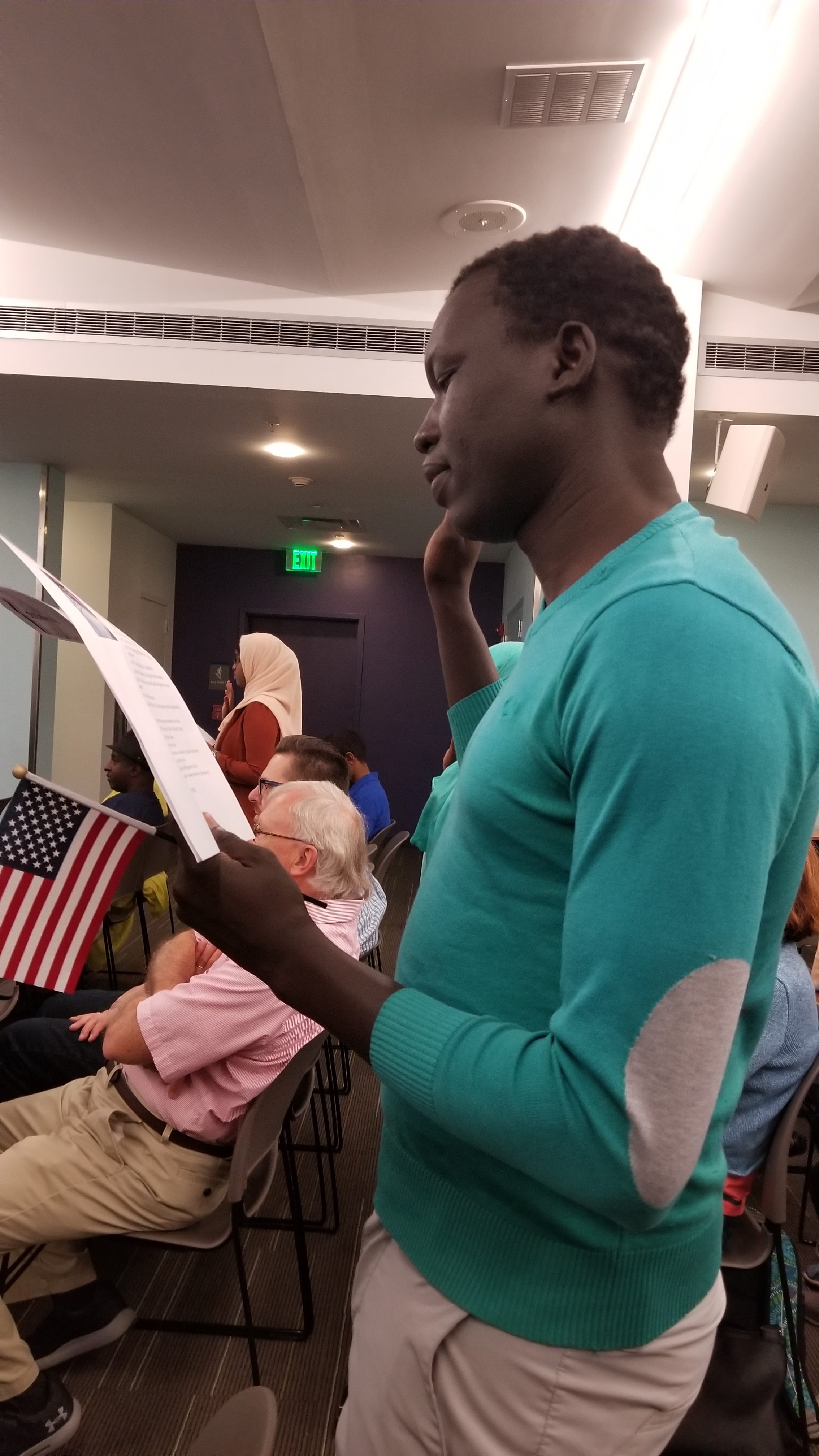By: Lillian Lema, Staff Writer
The United States has been known as the home of the brave and land of the free. However, the journey to be part of this nation isn’t always an easy one, at least not for USM student Bhan Karam. “Home is where I feel a sense of peace where I can be considered a part of society… where I can play any role in a society,” Karam said.
Born in South Sudan, Karam describes his time there as “a beautiful memory” with having almost everything they wanted. However, the beautiful memory came to an end when the civil unrest occurred. “We used to run into the forest so we could be safe,” Karam said. He remembers there being daily ambushes and attacks by helicopter gunships.
At the age of ten, Karam left his home country with his aunt and went to a refugee camp in Ethiopia.
The United Nations High Commissioner for Refugees describes refugee camps as “temporary accommodations for people who have been forced to flee their homes because of violence and persecution.”
Karam isn’t fond of his time at the refugee camp as he describes it as “horrible” and with limited freedom. “You couldn’t leave camp without approval from the ARRA, Administration for Refugee & Returnee Affairs… we weren’t free,” Karam said.
The refugee camp was scarce of food and water. Refugees were given food every month, but it would only last for 15 days. Since there wasn’t enough water for everyone, and refugees would walk 2 hours to the river to clean themselves.
After two years at the refugee camp, Karam moved to another refugee camp in an urban area of Ethiopia. “I was in school and I didn’t want to leave my education so I decided to stay,” Karam said.
At the urban camp, Karam was able to go to school and work. He would walk 45 minutes to get to school. After classes he would go to work as an interpreter.
While interpreting, Karam learned about the different reasons refugees wanted to come to America. He started to wonder if maybe he should take the chance and move to the U.S.
In 2012, the U.N resettled Karam and his 12 year-old brother to Washington state in the U.S.
Besides the culture shock and language barrier, Karam was having issues with his caseworker. The caseworker thought it would be best to separate the brothers. They wanted Karam to focus on work and his brother, who was a minor, taken to foster care. “I’ve been taking care of him for sometime and I’m the only person that could care for him… I’m his family,” Karam said.
In order to avoid this risk, Karam decided to move to Maine where he had cousins who could help with taking care of his younger brother. In December of 2014, Karam and his brother made the move to Maine, where they lived with their cousins for 8 months.
A year into moving to Maine, Karam started an ESL, English as a Second Language, program at USM. In the spring of 2017, Karam started his major in cyber security & information technologies and a minor in physics.
Besides continuing with his education, Karam had other desires. A couple of years back, Karam was missing his family and wanted to go back home to visit them. To his surprise his visa request was denied. “Not being able to go back home to see my family was very hard, but I kept pushing forward,” Karam said.
According to Karam, “when you come here as a refugee and live for 5 years without committing a crime you can apply for citizenship.” Back in March, Karam applied for citizenship and heard back from Homeland Security in June. In August, Karam went through the interview and test
process and passed.
The citizenship ceremony took place late September at the Portland public library. Karam attended with Linda Freeman, an advisor for TRiO student support services.
“At the ceremony… looking around the room it was emotional to see everyone there and to think of what they’ve been through to be here,” Karam said.
Now as a U.S. citizen Karam is trying to save some money to go back to South Sudan and see his family. “I am free to go back home and see my family, but also, now I have the opportunity to do and accomplish what everyone else can… I’m no longer an outsider,” Karam said.
“When I first came here to America it was difficult to define an identity, but finally I have an identity… I am American.”

